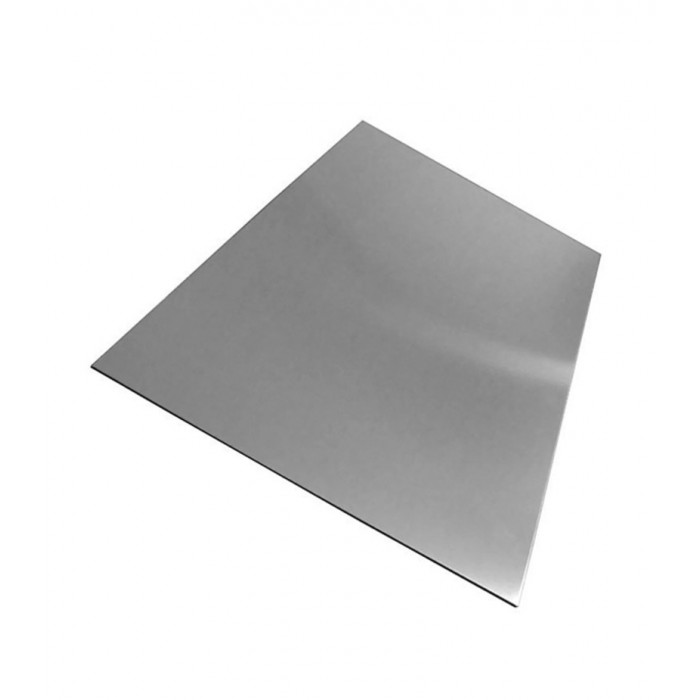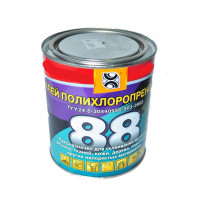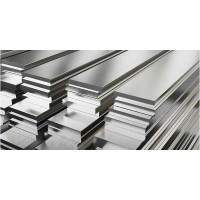Khmelnitsky sheet, tool steel U8A, HVG, 9XC, 5HNM, R6M5, spring-spring 65G
According to its intended purpose, tool steel is divided into steel for cutting tools, measuring tools and die steel. Sintered hard alloys are included in a separate group.
U7, U7A For woodworking tools: axes, splitting axes, chisels, gouges; small pneumatic tools: chisels, crimpers, strikers; forging dies; needle wire; metalworking and assembly tools: hammers, sledgehammers, punches, screwdrivers, combination pliers, needle-nose pliers, side nippers, fish hooks, etc.
U8, U8A, U8G, U8GA, U9, U9A For the manufacture of tools that operate in conditions that do not cause heating of the cutting edge and wood processing: milling cutters, countersinks, forgings, axes, chisels, chisels, longitudinal and circular saws; knurling rollers, plates and rods for die casting molds for tin-lead alloys. For metalworking and assembly tools: rivet crimpers, center punches, punches, screwdrivers, combination pliers, needle-nose pliers, side nippers. For simple-shaped gauges and low-precision classes; cold-rolled heat-treated tape with a thickness of 2.5 to 0.02 mm, intended for the manufacture of flat and coiled springs and spring parts of complex configuration, valves, feeler gauges, reeds, lamellas of dowel knives, small structural parts, including for watches, etc.
U10A, U12A For cores.
U10, U10A For needle wire.
U10, U10A, U11, U11A For the manufacture of tools operating in conditions that do not cause heating of the cutting edge; woodworking: hand crosscut and carpentry saws, carpentry machine saws, spiral drills; cold stamping dies (drawing, upsetting, trimming and cutting) of small sizes and without sharp transitions in the section; gauges of simple shape and low accuracy classes; knurling rollers, files, metalworking scrapers, etc. For files, scrapers of cold-rolled heat-treated tape with a thickness of 2.5 to 0.02 mm, intended for the manufacture of flat and coil springs and spring parts of complex configuration, valves, feeler gauges, reeds, lamellas of dowel knives, small structural parts, including for watches, etc. U12, U12A For hand taps, files, metalworking scrapers; dies for cold stamping, trimming and cutting of small sizes and without sharp transitions in the section, cold heading punches and stamps of small sizes, gauges of simple shape and low accuracy classes.
U13, U13A For tools with increased wear resistance at moderate and significant specific pressures (without heating the cutting edge); files, razor blades and knives, sharp surgical instruments, scrapers, engraving tools. Tool steel, carbon or alloy steel is used for the manufacture of cutting and measuring tools, cold and hot deformation dies, as well as machine parts experiencing increased wear under moderate dynamic loads.
Tool steel often contains more than 0.6-0.7% C; an exception is hot-forming die steel containing 0.3-0.6% C. To improve performance properties, tool steel is subjected to heat treatment (quenching, tempering), as a result of which the hardness of tool steel increases to 60-66 HRC, bending strength - 2.5-3.5 GN/m2 (250-350 kgf/mm2).
With increasing hardness, the wear resistance of tool steel also increases - the ability to maintain unchanged dimensions and shape of the working surface during friction with high pressures.
Tool steels alloyed with chromium and manganese have higher hardenability and hardenability than carbon steels. Increased red hardness of tool steel - the ability to maintain high hardness and wear resistance at temperatures up to 500-700 °C - is achieved by alloying steels with tungsten, molybdenum, vanadium. Depending on their resistance to heat that occurs during operation, tool steel is divided into three groups (see table).
Steels with low resistance to heat retain high hardness up to 150-200°C, are used for cutting soft materials at low speed and for cold deformation. Carbon steels of this group are characterized by low hardenability - products with a diameter (thickness) of more than 15-20 mm receive high hardness (up to 65 HRC) during hardening only in a thin surface layer, retaining a soft and viscous core. Due to increased deformation during quenching with cooling in water, carbon steel is used mainly to make simple-shaped tools - files, countersinks, hand taps, etc.
Low-alloy steels, which have slightly better hardenability, are used for small-section tools that require high and uniform hardness: hacksaw blades for manual cutting of metals, razor blades, circular saws for wood, etc. Alloy steels of this group have increased hardenability (from 25-100 mm) and are used for measuring instrumind, etc.
Steels with increased resistance to heating retain their performance properties when heated to 250-400 °C. These are mainly alloyed steels with a high chromium content (up to 12%). They have increased wear resistance under abrasive wear conditions, since they contain up to 20-30% of high-hardness chromium and vanadium carbides in their structure: Me7C3 (1200-1400 HV) and MeC (2000 HV). After heat treatment (quenching with cooling in air, in oil or in molten salts with a temperature of 150-180 °C), they acquire a hardness of up to 63 HRC. These steels are characterized by high hardenability (up to 300-400 mm) and minimal volumetric changes during hardening. High-chromium steels are used to make large stamps that are subject to increased wear, surgical instruments that are resistant to aggressive environments, etc.
Heat-resistant steels retain their hardness up to 560-700 °C. The main alloying elements of such steels, which provide their red hardness, are tungsten and molybdenum. Steels with a high carbon content (0.7-1.5%) and high hardness (up to 64-68 HRC) are used to make cutting tools; steels with a carbon content of up to 0.4% (die steels), which have lower hardness but better viscosity, are used for hot deformation stamps, molds for die casting metals under pressure, etc. In order for the spring steel to become elastic, it must undergo calcination along its entire cross-section. This point is very important. If it is ignored, then a high yield point will arise only in individual fragments of the part. Therefore, under prolonged compression, such a part may crack, break or burst.
When choosing a steel alloy for the manufacture of a spring element, you need to remember the concentration of alloying additives. The optimal concentration of carbon in the alloy is 0.5-0.7%. The use of a material with a higher carbon content is allowed, but this does not make much practical sense. After all, in this case, the risk of cracking of the material under prolonged load increases significantly, which makes the steel spring useless.
Some additional requirements regarding the content of alloying additives:
Silicon - no more than 2.5%.
Manganese - up to 1.1%.
Tungsten - up to 1.2%.
Nickel - no more than 1.7%.
To obtain spring steel, hardening of ordinary steel material is used. Hardening is recommended to be carried out at a temperature of about +800-900 degrees. During hardening, the yield strength increases significantly, but at the same time a large amount of martensite is formed, which negatively affects elasticity. Various technologies are used to destroy martensite. The optimal method is to use tempering at medium temperatures (400-500 degrees).
Disadvantages of spring steel
Poor weldability. Hardening leads to partial deformation, destruction of the outer layer of the material. In the case of welding, melting of the outer hardened layer can lead to the creation of a poor, low-quality weld with cracks.
Problematic cutting. Spring steel alloy has a high resistance to elastic deformation, so it will be difficult to cut such material. To obtain metal with the desired physical properties, tempering and hardening of spring steel is used. Each of the stages has its own technological features:
First, spring steel is hardened at high temperatures. Due to hardening, the yield strength of the material increases significantly, which makes the steel elastic, malleable, and stable.
However, during high-temperature quenching, martensitic compounds are formed inside the alloy, which sharply worsen the elasticity of the material, making it unusually brittle and hard.
To get rid of martensitic compounds, tempering of spring steel should be used at low temperatures. During such treatment, martensites are destroyed, which allows you to get a material with the desired properties.
Please note that the temperature and time of treatment at each stage depend on the grades of spring steel used. For example: spring steel grade 65G should be quenched at a temperature of +800-850 degrees, tempered at +400-500 degrees.
In some cases, quenching and tempering are combined with the metal normalization procedure. This procedure allows you to get rid of excess stress inside the metal, but in most cases, normalization occurs by itself during the cooling of the material. Therefore, additional processing by normalization is usually not required. Spring steel is a low-alloy, medium-carbon or high-carbon steel with a very high yield strength. This allows spring steel products to return to their original shape despite significant bending and twisting.
Most spring steels (like those used in automobiles) are hardened and tempered to 45 Rockwell C. Silicon is a key component of most spring steel alloys. In the United States, the most commonly used spring steel is ASTM A228 (0.80-0.95% carbon), which is also known as "music wire" or "piano wire".
The main grades of spring steel are grades 60G, 65G and others, with a carbon content of 0.5-0.9%. It is used to make springs and similar products, such as torsion bars and springs. Due to its resistance to fractures and cracks, spring steel is also widely used in the production of metal swords for stage fights. Spring steel is one of the most popular materials for making master keys due to its elasticity and flexibility. It is also used for piano strings and spring clamps.
No questions about this product, be the first and ask your question.



